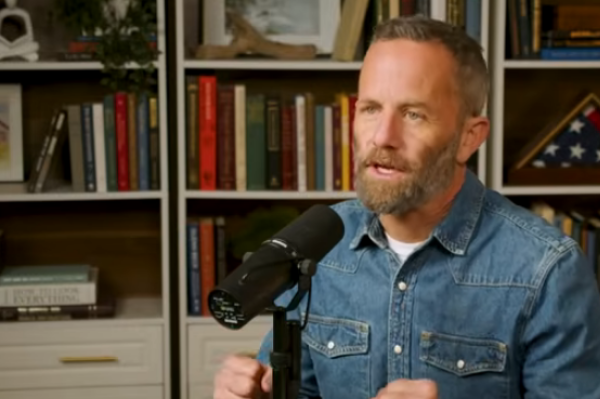Conservatives Have Messaging, Not Message Problem, Leaders Say
WASHINGTON – A central message heard from many of the speakers at this weekend's National Review Summit, "The Future of Conservatism," was that conservatives do not need to change their message, but need to do a better job at communicating their message.
"I believe that conservative values, they're the right values. We don't need to change them, we need to change the way we message them," said Mia Love, mayor of Saratoga Springs, Utah.
Former Congressman Artur Davis, who recently switched from the Democratic to the Republican Party, agreed that conservatives have done a poor job at communicating their message. Conservatives have been "better at talking to each other, than talking to people who are not like us," Davis said.
Some of the speakers argued that conservatives and Republicans have done a poor job at speaking to certain demographic groups. Hugh Hewitt, host of The Hugh Hewitt Radio Show, favored speaking to the concerns of Latinos in a debate with Mark Krikorian, executive director of the Center for Immigration Studies, on immigration reform. New York Times columnist Ross Douthat claimed that Republicans have done a poor job at speaking to the concerns of today's middle-class swing voters. Kellyanne Conway, president and CEO of The Polling Company, urged conservatives to better understand the variety of concerns of women voters, in a panel called, "Do Demographics Doom the Right?" And, Arthur Brooks, president of American Enterprise Institute, and Davis both emphasized how conservative policies help the poor.
There were many different ideas presented on how conservatives, Republicans in particular, should improve how they present their conservative views to the public. Several of the speakers complained about crony capitalism. Brooks, for instance, said that conservatives should not be pro-business, but pro-free enterprise. When businesses go to government for handouts, they undermine the free enterprise system.
The two biggest threats to liberty, Brooks said, are "statism and corporate cronyism, and they're the same thing."
Along those same lines, several of the speakers criticized the "too big to fail" banks.
Other speakers sounded a populist message when talking about education. Louisiana Governor Bobby Jindal, for instance, spoke Sunday about the education reforms of school choice and charter schools that he implemented in his state to help the poor and middle income families who cannot afford private school for their kids.
In his Saturday morning speech, Congressman Paul Ryan (R-Wis.), last year's Republican vice presidential nominee, said that in President Barack Obama' first term, conservatives "argued against big government in theory." In his second term they will "argue against it in practice," by pointing to the negative effects of the Affordable Care Act, or "Obamacare."
Ryan also called for prudence, or "good judgment in the art of governing:"
"We have to find the good in every situation – and choose the best means to achieve it. We have to make decisions anchored in reality – and take responsibility for the consequences. The prudent man is like a captain at sea. He doesn't curse the wind. He uses it – to reach his destination."





















